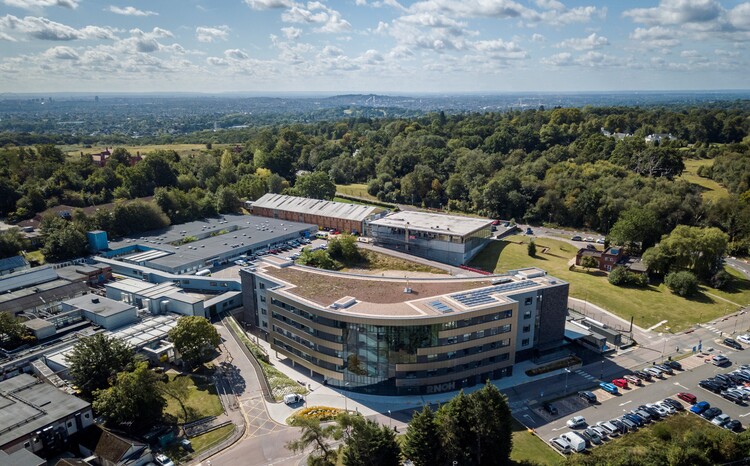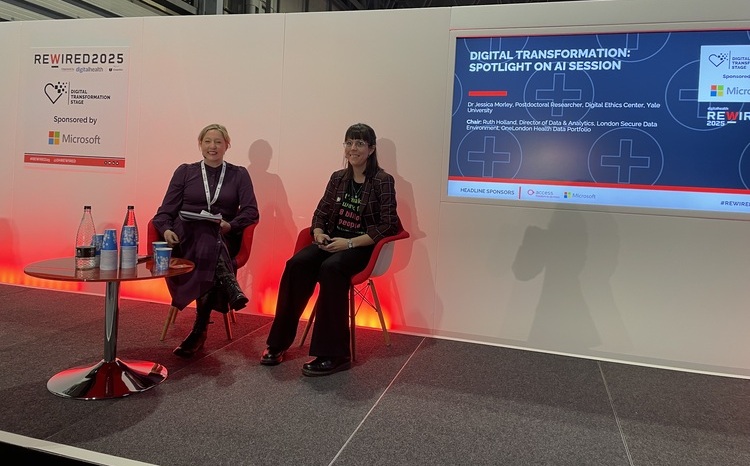Privacy concerns raised over trust’s AI data-sharing deal
- 16 August 2024

- MedConfidential says an agreement between the Royal National Orthopaedic Hospital (RNOH) and an AI startup contravenes NHSE data sharing guidance
- The 2018 contract covers the development of AI software for data analysis in the field of orthopaedic surgery and musculoskeletal medicine
- RNOH says that at the time of entering the contract in 2018, there was no NHS guidance regarding exclusive use of data
A privacy campaign group has raised concerns about a data sharing agreement between the Royal National Orthopaedic Hospital (RNOH) and AI startup Naitive Technologies.
RNOH, which has sites in Stanmore and London, entered into a collaboration agreement with Naitive (then named Ortho AI) in 2018, covering the development of AI software for data analysis in the field of orthopaedic surgery and musculoskeletal medicine.
MedConfidential sent a freedom of information request (FOI) to the hospital in November 2023, requesting a copy of a contract with Naitive Technologies and details of any patient data which had been shared under the agreement.
In its initial FOI response in November 2023, RNOH denied that it had any arrangements with Naitive, but following a challenge from MedConfidential, it admitted that this was inaccurate.
RNOH provided redacted versions of a collaboration agreement and investment agreement with Naitive, as part of an FOI response in March 2024.
MedConfidential told Digital Health News that it believes the deal contravenes guidance on NHS data sharing with researchers, published by the Department of Health and Social Care and NHS England in July 2019.
Sam Smith, coordinator at MedConfidential told Digital Health News: “This agreement is so murky and so contradictory it’s impossible to know what actually happened – which is a clear breach of the national data guardian’s ‘no surprises’ rule which NHSE says that its guidelines deliver.
“The NHS should not let companies profit from breaking NHS rules – procurement rules should require that anyone buying algorithms or AI is shown exactly how all data was acquired”.
MedConfidential also highlighted a possible conflict of interest because Robert Hurd, then chief executive of RNOH, joined Naitive’s board in July 2018 at the time the contract was signed.
Hurd left the board in 2020, according to a declaration of interest published in the trust’s 2018-19 annual report.
A spokesperson for RNOH told Digital Health News that the trust began negotiations with Naitive in November 2023 to amend the 2018 agreement to reflect the 2019 NHS guidance regarding exclusive use of data.
They added the guidance is not law and the trust’s contracts “are, and always have been, in line with legal requirements”.
“The trust recognises the importance of maintaining patient confidentiality and trust as well as promoting research and innovation.
“All data that is shared with Naitive is anonymised prior to it being shared,” the spokesperson said.
Regarding Hurd’s appointment to Naitive’s board, the spokesperson said that the relationship with Naitive was “initially a research arrangement and when it became a commercial arrangement Rob Hurd resigned as a director”.
They added that his position was unpaid and Hurd did not hold shares in the company.
A spokesperson for Naitive confirmed to Digital Health News that the firm “established a data-sharing agreement aimed at developing digital technologies to enhance patient care” with RNOH in 2018.
“This agreement was formed in good faith, in accordance with available guidance at the time, and continues to comply with all relevant legislation.
“All data shared under this agreement is anonymised and remains securely within the RNOH,” the spokesperson said.





